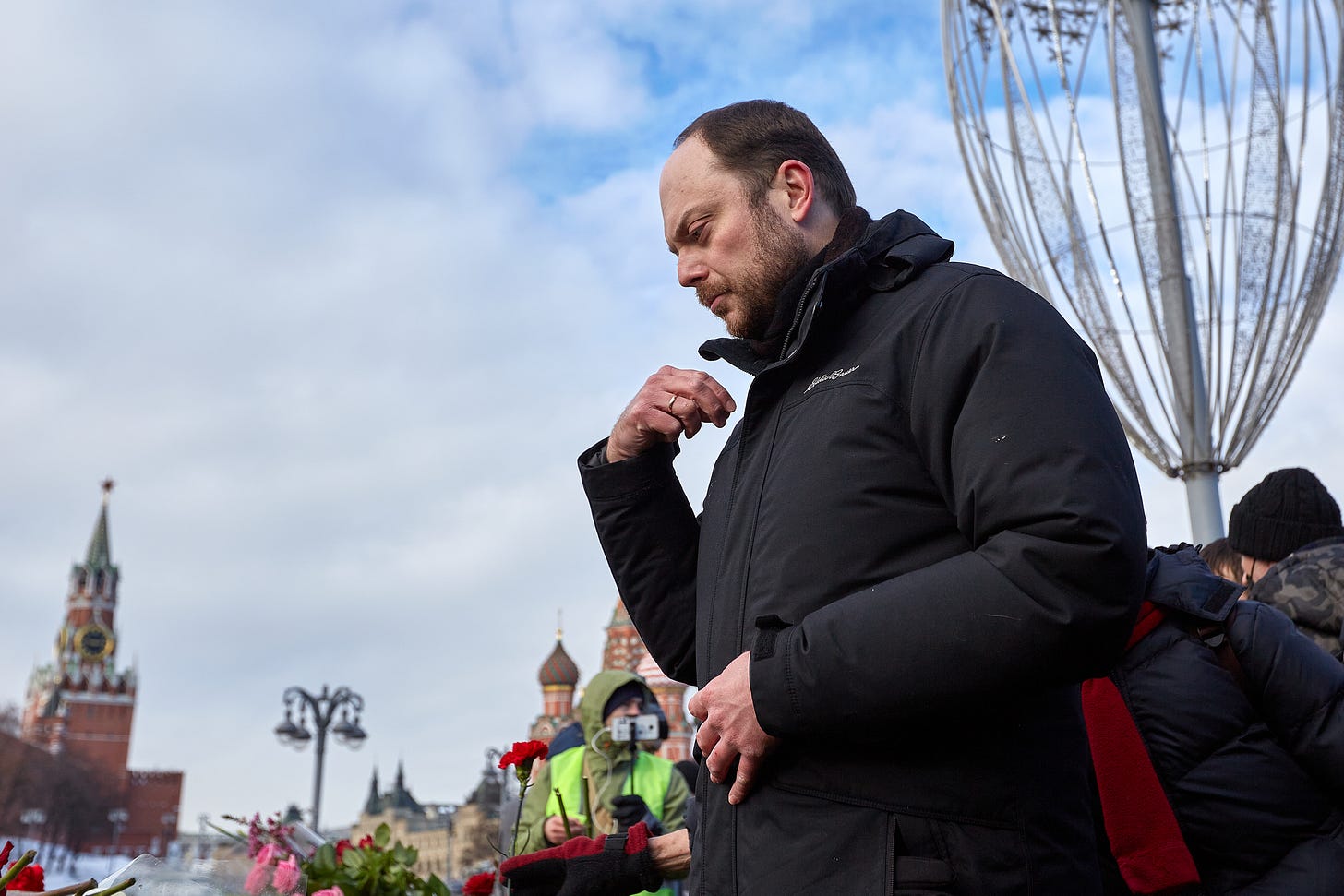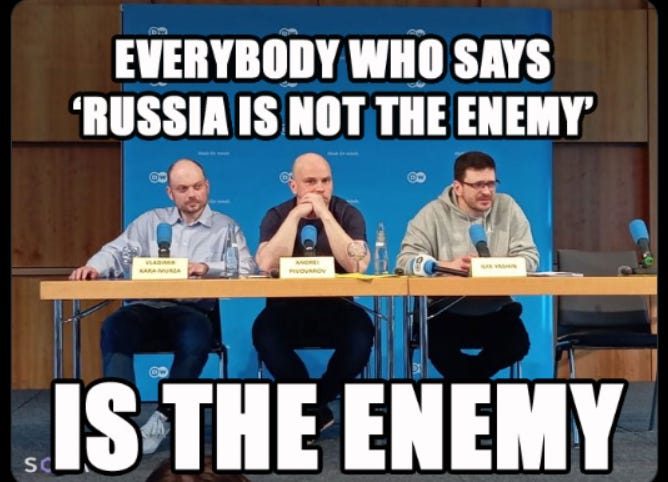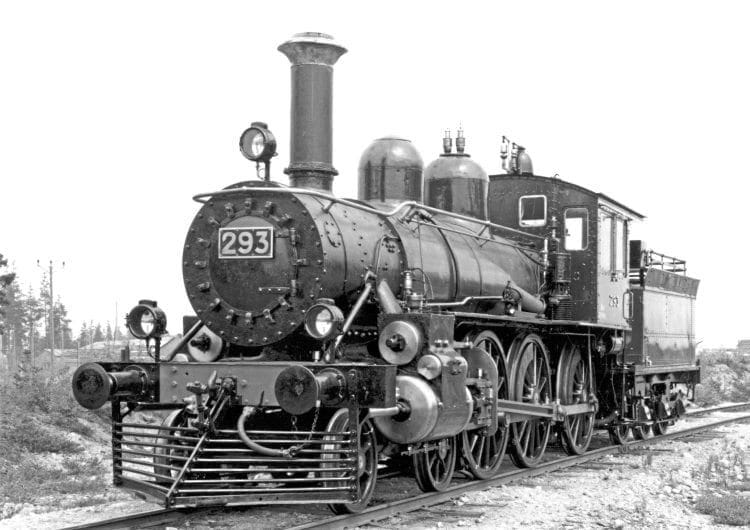The Danger and Usefulness of the Russian Opposition
Russian dissidents may feed Western optimism about reconciliation, but they also present a path to victory for Ukraine
The recent hostage swap that freed sixteen people including American journalist Evan Gershkovich also included Russian dissident Vladimir Kara-Murza. The inclusion of a Russian has produced some controversy, particularly amongst Ukrainians. This is a product of the deep mistrust and frequent antipathy that Ukraine has towards the Russian opposition, including the late Alexei Navalny and his widow, Yulia Navalnaya. Despite the opposition of these figures to Putin’s regime, Ukraine still views them as dangerous to its own interests.
This is in large part due to comments they have made that suggest they harbor Russian chauvinist views, despite their opposition to Putin. What’s more, Russian opposition figures tend to minimize the moral responsibility of ordinary Russians for the actions of Putin’s regime. In the view of Ukrainians, this feeds a naïve desire in the West for a swift normalization, even at the expense of Ukraine. The West’s desire for reconciliation with Russia in the 1990s led it to ignore Russian atrocities in Chechnya. Likewise, the Obama-era reset of relations abandoned Georgia to invasion and enabled the 2014 invasion of Crimea and Donbas.
As such, Ukrainians perceive clearly the danger of the Russian opposition. It has the potential to feed a delusion in the West that the Russian people yearn for liberalism and so lead the West to another premature reconciliation at the expense of Russia’s neighbors. Even when the Russian opposition does not seek to foster this view of the Russian public, there is a danger that Western politicians will view them as overly representative of Russian public opinion, as has so often occurred with governments in exile.
Ukrainians who take this line cannot be faulted in light of the West’s history of eagerness to normalize relations with Russia at the expense of others. In the long term, this is a serious concern; there will absolutely be influential voices speaking for normalization while Russia’s imperialist agenda is still pursued. However, the graveness of the immediate threat to Ukraine means that the Russian opposition remains more helpful than harmful to Ukrainian interests because of its potential to destabilize Putin’s Russia. The mortal threat to Ukraine merits supporting the opposition, even if it runs the risk of Western normalization with a new regime in the future.
Ukrainians feel strongly when Russian dissidents echo the language of Putin in describing Ukraine and Russia as “fraternal” nations. Ukrainians feel the last decade of victimization has dissolved any such bonds. Invasion and atrocities are incompatible with brotherly feeling. Likewise, the Russian opposition is, of course, incorrect when they claim that ordinary Russians bear no responsibility for the actions of Putin's regime and for Russia’s invasion of Ukraine.
But should we prefer them to tell the truth? Were they to make plain the culpability of the Russian public, that would seriously compromise their ability to sway that same public. Likewise, the historical ties of Ukraine and Russia are undeniably a powerful rhetorical tool for appealing to the Russian public to oppose the war. It is without a doubt more important that the Russian opposition are effective than that they are correct. This means that the opposition will have to play to the sentiments of the Russian public, even at the cost of the truth.
The Russian public will not be persuaded by dissidents who (correctly) identify the public as rife with imperial chauvinism, culpable for the crimes of the regime, and morally responsible for the horrors of Bucha and Mariupol. Russian dissidents stand a much better chance at success if they argue that Putin is wasting Russian blood in a fratricidal war. It is for this reason that—though dangerous and unpopular as the Russian opposition is to Ukraine—Ukraine would nevertheless benefit from displays of cooperation. It is useful propaganda to emphasize the war is one of Putin’s choosing and that there is no intrinsic reason that Ukrainians and Russians (or Russia and the West for that matter) must be enemies. Putin tells Russians the war is necessary. Ukraine and the Russian opposition should seek to show them that it is a choice and that the Russian people can choose peace. Ukraine can undermine Russian morale by contradicting Putin’s stated reasons for fighting. The myth of the “good Russian” can be turned to Ukraine’s benefit encouraging both civil strife and surrender, particularly amongst conscripts.
The ideal case would be that the Russian opposition would dissemble publicly, saying whatever increased the likelihood of a collapse of Putin’s regime, while at the same time having an iron-clad private devotion to the transformation of Russia and a clear understanding of the collective guilt of the nation. However, even if this were the case, the Russian public opinion limits the reach of even the most benign intentions. It is, after all, not possible to “dissolve the people and elect another,” as Bertolt Brecht once facetiously suggested. We should therefore be realistic about what liberal reformers might accomplish. The Russian populace is not supportive of alignment with the West. They do not wish for their country to be merely one of many European states. They desire the continuation of Russia’s status as a great power and of the narrative of exceptionalism. Even if figures totally aligned with the West in sentiment gain power, Russian policy will likely be circumscribed by this view.
The key element is that the West must not be over-eager to reconcile with a new regime. The West must be prepared to contain the new Russia, as it ought to have Putin’s Russia. Showing complacency would only embolden the worst impulses of Russian grand strategy, whereas demonstrating strength and resolve would do much to strengthen a more realistic view. It would therefore be a mistake to anticipate Russia liberalization even in the event of opposition success. Even if Russian aggression abates, it is unlikely that its chauvinism and exceptionalism will allow it to become an ordinary country. Such a transformation is not impossible, but it would be foolish to base a strategy on that assumption.
What must be kept in mind is that the immediate objective is victory for Ukraine and the liberation of its occupied territories. The Russian opposition is useful in their potential to create a political crisis or collapse in Russia to enable this. The strategic purpose of supporting Russian opposition, from a Western and Ukrainian perspective, should be first to bring about the collapse of Putin’s regime and thereby give Ukraine the ability to liberate its occupied territory. Only secondarily should their potential to turn Russia into a liberal democracy be considered, if only because the first part is a prerequisite of the second. Not only, but the closer the opposition cleaves to the West, (and the more it inclines itself towards a liberal democratic revolution) the less likely it is to be able to seriously challenge Putin.
It is therefore not necessary that the Russian opposition have any benign intentions so long as they are willing to damage Putin. Even if, in their innermost hearts, they desired nothing more than the reconstitution of Russia’s empire and the renewed subjugation of the peoples of Eastern Europe, that would not appreciably change the strategic calculus. In order for the opposition to take power, Putin’s regime must collapse. That collapse would preclude a Russian victory in Ukraine and is therefore in Western and Ukrainian interests. Supporting Russian dissidents means making that collapse more likely.
Support for the Russian opposition should therefore not be seen as a distraction from support for Ukraine, but rather as one of its most vital forms. While there are no signs of a collapse on the Russian homefront, there rarely are. Optimizing the odds of such a rupture represents one of Ukraine’s few clear paths to victory. Notably, it is one of the few routes that does not require a complete defeat of the Russians in the field to liberate the occupied territories. A political collapse could force Russian withdrawal from positions that would otherwise be taken only at high cost. The value in pursuing this route is all the more so in that the kind of resources required to support the Russian opposition are of an entirely different nature than those Ukraine needs. While the odds of success are relatively low, so too is the cost. Combined with the high value of success, the overall effort is efficient.
It is a somewhat crude example, but in 1917, German High Command did not ensure Lenin’s ideological conformity before sending him to Petrograd, pockets stuffed with German cash. The arch-conservatives of Imperial Germany were clear-eyed about the value of collapsing the Russian homefront by supporting agitators, even if vastly different in ideology. While Germany would eventually be defeated on the Western Front, this should not obscure the significance of knocking Russia out of the war. Fanning the flames of political turmoil in an enemy by supporting dissidents can offer disproportionate benefits.
Certainly, the weakness of the provisional government in 1917 created a febrile atmosphere for this kind of foreign meddling. Today, Putin’s Russia shows no immediate signs of domestic unrest. But in 1916, after the successful Brusilov Offensive, it was not at clear that the Tsarist regime would collapse within a year’s time. It cost the German Empire little to keep sufficient tabs on Lenin to be prepared to exploit him when the opportunity arose. Under the same logic, Ukraine and its allies should seek to keep and promote a nucleus of Russian opposition strong enough to foster and exploit turmoil within Putin’s Russia. The specific beliefs of the opposition are of secondary importance only. If Russian political collapse was foreordained, then it would be wise to carefully examine the views of potential successors. However, at this point, we should be more interested in dissidents as saboteurs than as policymakers.






Excellent analysis! One has to be pretty damn brave to be a dissident in Russia. Putin, psychopath that he is, has no qualms murdering or imprisoning any one he thinks would threaten him. Whether the West could have helped Russians establish a liberal democracy after the USSR collapsed is questionable; in the event the West made a hash of it.
Fair points. I am worried what the Russian dissidents will whisper in Western leader's ears though. Politico recently quoted unnamed officials who explained US limitations on Ukrainian weapons use by concern about restoring relations with Russia in the futre.
I am not convinced that exchanging actual agents against political prisoners was a good signal. It shows that you can send agents to the West and if they get caught, you can exchange them for prisoners that you can easily "manufacture".